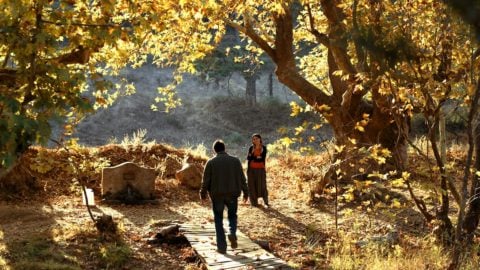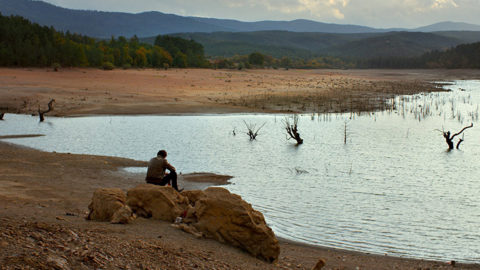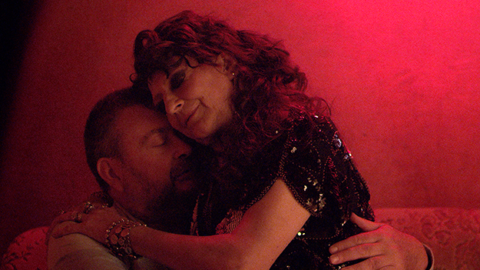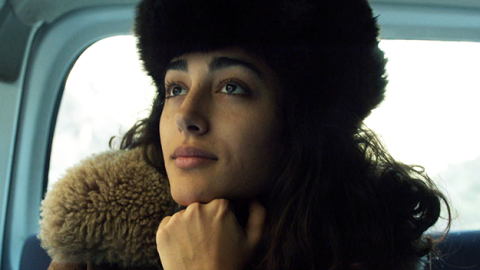By Yonca Talu in the January-February 2019 Issue
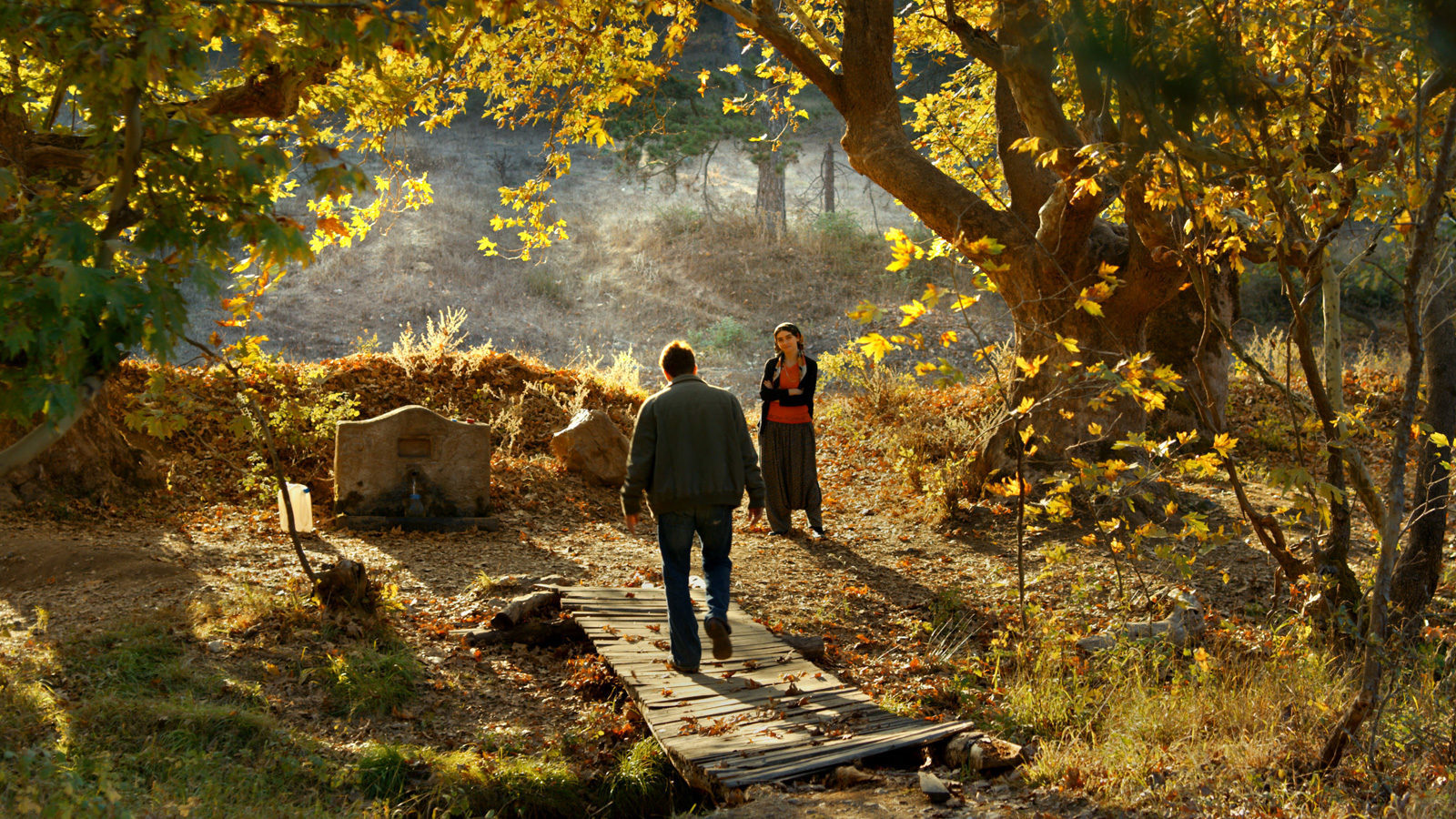
The Big Screen: The Wild Pear Tree
(Nuri Bilge Ceylan, Turkey/France/Germany/Bulgaria, Cinema Guild, Opening January 30)
Sketching a panorama of rural and urban Turkey through portraits of alienated relationships, Nuri Bilge Ceylan’s autobiographically infused cinema has taken a gradual turn from nonverbal, atmospheric storytelling to experiments with densely cerebral dialogue. After charting the midlife disenchantment of a narcissistic former actor and hotel manager against the backdrop of Cappadocia’s rugged valleys in the Palme d’Or–winning Winter Sleep (2014), the 59-year-old filmmaker casts his attention onto the trials and tribulations of youth in his latest Chekhovian effort, The Wild Pear Tree. Co-written with and based on the memoirs of Ceylan’s nephew, Akın Aksu (also featured in a supporting role as an imam), The Wild Pear Tree delves into the mind of Sinan (Aydın Doğu Demirkol), a freshly graduated aspiring novelist who returns to his hometown of Çan to seek sponsorship for his first book, a collection of essays about life in the Çanakkale Province. As Sinan roams through the autumn-colored countryside, pitching his work to local public figures and reconnecting with old acquaintances, what emerges is the snapshot of a stagnant, hypocritical society crippled by protocol and self-interest.
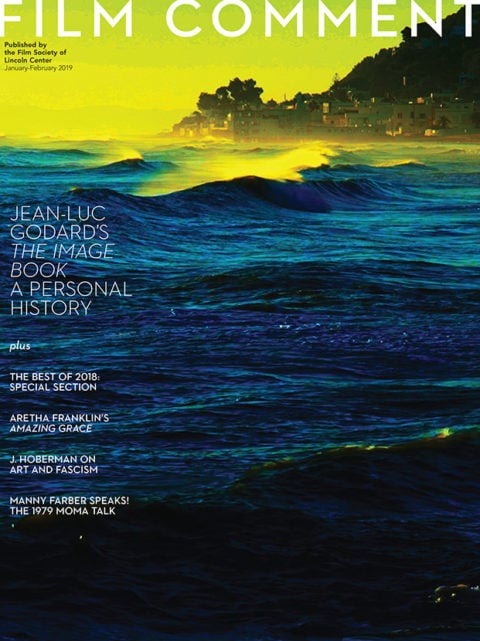
From the January-February 2019 Issue
Also in this issue
Amid this landscape of conformity and inhibition, Sinan’s schoolteacher father, İdris (Murat Cemcir), stands as an embodiment of bucolic innocence. Despite being scorned and rejected for gambling away his money and possessions, he leads the quintessential happy-go-lucky existence, finding purpose and transcendence in nature and the mundane. İdris’s temperament collides with the outlook of Sinan, who conceals his literary sensitivity beneath a hard-headed and hostile attitude: in a reconciliation scene with his self-sacrificing mother (Bennu Yıldırımlar), the young man confesses how his writing ambitions are at odds with his misanthropic personality. But Sinan’s hatred is a product of disillusionment, and Ceylan movingly renders the sense of a lost paradise in the fleetingly impressionistic encounter between Sinan and his onetime love interest, the soon-to-be-married Hatice (Hazar Ergüçlü). Recalling the metaphorical lyricism of Ceylan’s early films, this is a rare moment where the director trusts ambience over prose, conveying the precarious horizon of Sinan’s generation through the melancholy stillness of a pastoral afternoon—the tragedy of Hatice’s wasted intelligence and grace, and the impossibility of being a writer in Turkey today.
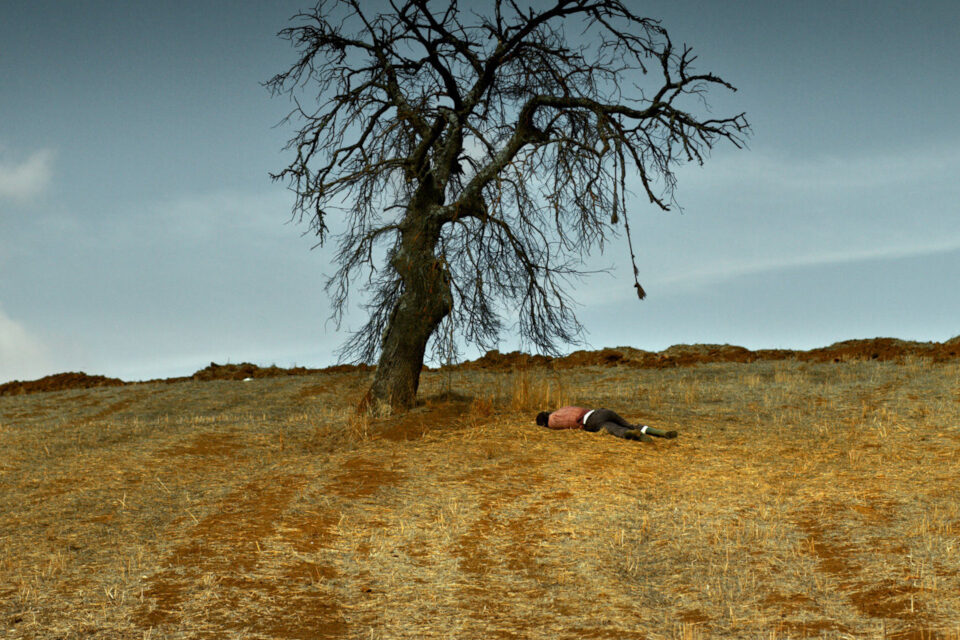
Formerly jailed author Aslı Erdoğan has written evocatively about the country’s recent traumatic past, as in a poetic journal entry: “We sway back and forth between agonized sleep and wakefulness in pursuit of the last dream we can save from this fire whirl.” This feeling of helplessness and doom permeates The Wild Pear Tree, whether through its motif of an endlessly excavated, waterless well, or its protagonist’s conflicted inner world that wavers between an arrogant belief in his vocation and the nihilistic urge to give it up in favor of a more conventional destiny. Although never explicitly invoking the current situation in Turkey, Ceylan stresses Sinan’s reluctance to be appointed a teacher in the country’s conflict zones, and drops hints of social malaise into the dialogue, as epitomized by a 20-minute-long theoretical dissection of Islam. Yet there is a genuinely disturbing quality about the filmmaker’s attempt to produce guidelines for an increasingly impenetrable and ineffable reality. Whereas Erdoğan crashes into a wall of incomprehension and doubt, recognizing the failure of her words to express the zeitgeist, the characters of The Wild Pear Tree spell it out confidently and pragmatically, inhabiting a safe hinterland between the timeless and the contemporary.
When Nuri Bilge Ceylan burst onto the Turkish filmmaking scene in the mid-’90s, he revitalized it with a visual language celebrating the power and specificities of the medium in the face of a mind-numbing, gossipy television culture. His modernity stemmed from his remarkable ability to take the pulse of the nation through poetically malleable screenscapes forged in concert with the audience’s imagination. Ceylan’s latest two films accomplish the opposite by taking us hostage within introverted narratives that shovel ideas down our throats. As a young Turkish filmmaker, I consider this a step backwards, since in a country where our voices are crushed every day, cinema should be an open-air pavilion that expands our consciousness of ourselves and of the horrific events surrounding us. After all, it was Ceylan himself who paved the way for a Godardian thinking form in Turkish movies with his masterful murder investigation tale, Once Upon a Time in Anatolia (2011). In these brutal times, I dream of a visceral and transgressive cinema that honors the memory of countless other missing people calling to be unearthed across our lands.
Yonca Talu is a filmmaker living in Paris. She grew up in Istanbul and graduated from NYU Tisch.



